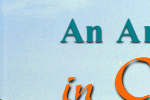 | 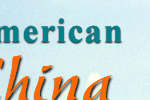 |  |  |
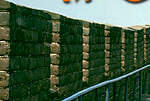 | 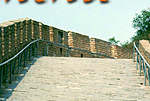 | 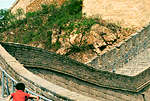 | 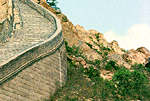 |
 |  | 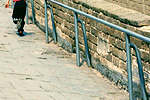 | 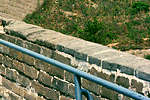 |
 | 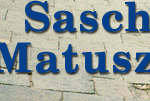 |  | 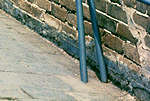 |
|
October 16, 2002 The Future of East-West Rapprochement |
|
Since Old Deng’s Open Door policy toward the world and the West in particular, foreigners have been pouring into China in greater numbers. Excluding the few years following the Tiananmen Tragedy, the number of travelers, businessmen, scholars and teachers arriving in China has increased with each passing year. The focus has been on the business end of East-West communication, but the most significant aspect of cultural exchange lies amongst the growing number of foreign students and professors at Chinese universities and English teachers in the middle, high and now also the primary schools. It’s here that the young Chinese students build their first impressions of foreigners. And what a first impression they get. The ESL (English as a Second Language) business – and that is what it is – cares little for prior qualifications, consistency or results for that matter. Therefore a motley band of random English speakers—some native-speakers, some not, some qualified, some not—rotate through classes filled with students whose interest ebbs and flows. The students ask if all Americans are blonde, if we can use chopsticks, if we can eat spicy food, if we like China and, most recently, about Bush and Iraq and 9/11 and the rise of their own country. (In short, most of these students still have little clue as to what Westerners are like, what Westerners like and how Westerners think.) The teachers they do meet stick around for their contract (sometimes) and are mostly interested in the monthly paycheck and free apartment that comes with an ESL job in China. Even if a teacher is truly interested in being an ambassador, most teachers barely speak Chinese and if so not enough to communicate. And how can anyone tell a twelve year old about American culture and expect them to understand? Especially when that twelve year old is learning about the historical cultural magnificence of his or her own country – even if the streets are currently dirty and the cities foggy with pollution and full of the unemployed. Because their schoolbooks herald the coming Age of the East by delving deeply into five thousand years of history and culture and drawing parallels with the modern China, whose map spreads from Xinjiang to Hong Kong and Beijing all the way to the very tip of Indonesia. The South Sea – and all its little islands – are considered Chinese territory. The Mongol Empire is the Yuan Dynasty. When these children grow up, they will find it hard to reconcile their history with our history and vice versa. Modern China’s rise is fueled by a pride and determination to take its rightful place on the world stage – to keep the train going, this pride is injected into the youth, the students. So when these students, driven by their teachers and parents to be successful – studying all day, every day – meet up with expats, hacks, travelers and the occasional real teacher, well, the cultural exchange may leave a little to be desired. These pre-pubescent Chinese will not be the ones to help remove the phrase "strategic rival" from the Sino-US discourse. In fact, the twelve year olds of today’s China are being groomed for the front lines in what may be an epic struggle for China’s superpower status. They have encountered the enemy and found him (us) to be fleeing our own country and culture, they listen to us lambaste and lament our own government’s policies while they themselves grow ever more confident in China’s strength. Often I find myself listening to a young boy screech indignantly about the US government’s attempts to "keep China down" or snort in disdain over certain Western values, so-called traditions. Obviously these are children mouthing someone else’s words, but it is disconcerting to have a kid tell me he won’t listen to what I have to say in class because there is nothing China has to learn from a Westerner. So, it may sound bad, but the same students who chortle in scorn also hold my hand when we’re walking down the hall, love Allen Iverson and the Backstreet Boys, think hot dogs are "cool" and are the ones quickest to pick up the language. They write me notes about my "beautiful beard" and keep asking me if I’ll leave soon like all the others. After all they are just children and no matter what they learn in school – I remember thinking Communism meant machine guns and barbed wire, not an ideology – growing up will change them more than any conversation with a Westerner can. It may be another 15 years before Chinese and Westerners can get past the sneaky yellow guy vs. big nosed barbarian stereotypes. Chinese people are quite confusing to the Western mind and even if many Chinese say we’re very easy to understand, I know we’re just as weird as they are. I place my hopes on the tiny ones I teach every so often – the ones who rub my hairy arm in wonder and love to dance and sing. Perhaps no matter what they learn in school as the years go by, they’ll remember me as Uncle Sasch, the hairy guy who tickled me when I was little. -Sascha Matuszak Please Support Antiwar.comSend contributions to Antiwar.com or
Contribute Via our Secure Server Your contributions are now tax-deductible
|
Sascha Matuszak
is a teacher living and working in China. His articles have appeared
in the South China Morning Post, the Minnesota Daily,
and elsewhere. His exclusive Antiwar.com column (usually) appears
Fridays. Archived columns The
Future of East-West Rapprochement Tiananmen's
Legacy: The Forgotten Rebellion Deciphering
the Chinese Smile Why
China Can Disregard US Anger Arming
the World: What the US Fears 1.3
Billion Problems For China China's
New Post-9/11 Status
Sweep 'Em Off the Streets
Chinese Embrace Progress China's
Afghan Agenda New
War May Reveal New Superpower, Part II New
War May Reveal New Superpower A
Chance for a New Friendship? Cheating
as a Way of Life China's
Internet Generation Free
Markets or Supermarkets Sailing
Towards World Significance China's
Youth Revolution |
